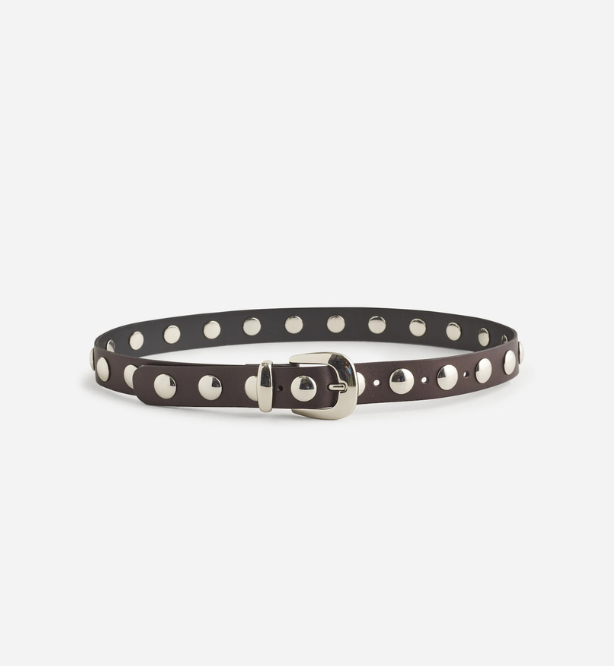Anyone who’s ever had a long-term partner knows that every relationship has its ups and downs. Sometimes you might feel like you and your significant other are completely in sync, and other times you might feel like you live on different planets. We’ve probably all heard of “the seven-year itch” — but of course, there’s no real predictable timeline for when (or if) a relationship will stagnate. What we do know is that once the honeymoon period is over, it’s not uncommon to find yourself in a relationship rut.
Whether you’ve been together for seven years or 17, if you’ve reached the point where your spouse feels more like a roommate you only interact with on an as-needed basis, you might be experiencing relationship drift. “This is what happens when a sense of distance begins to grow between you and your partner,” says Min Chung, a therapist with Talkspace. “It’s generally not something that’s going to get better on its own. Unless you both acknowledge there’s a problem and make a concerted effort to rebuild what you’ve lost, that distance will continue to grow.”
So how exactly can you bridge a growing gap with your significant other? It might not be easy, but it’s absolutely possible. Chung has some suggestions to help get you to a place where you prioritize keeping your bond strong and ensuring both of you feel appreciated.
Start with “I am” statements
If you feel like something has changed in your relationship, chances are your partner does, too. But no matter how gently you confront them, there’s a good chance they’re going to initially feel defensive.
To avoid placing blame, Chung suggests beginning the conversation by speaking only about how you’re feeling: “Making ‘I am’ statements, or statements that focus only on how you feel, allows you to explain what’s bothering you without making an accusation,” she says. “So you might say, ‘I’m feeling lonely in our relationship,’ or ‘I am sad that we don’t spend as much time together anymore.’”
Chung says that if either she or her husband makes an “I am” statement in their relationship, it’s a cue that there’s something serious the other wants to discuss, and it’s time to pay attention.
Take some time
While it might sound counterintuitive to give your partner space when your ultimate goal is to get closer, it’s essential to give them time to process what you’ve said and formulate their response.
“It’s not uncommon for emotions to run high when you first initiate a conversation about being unhappy with your relationship,” Chung says. “So as soon as you voice your concern, let them know you’re not looking for an immediate response, that you know this is a lot to process, and ask them to take some time to think about what you’ve said. Then when you’ve both had time to cool off, find a time when you’re both completely free from distraction to continue the discussion. Then, really listen to their response, and take more time away to process if you need it.”
Ultimately, convey to your partner that your end goal is not to start a fight but to come to a solution together in order to make your bond stronger.
Be intentional
In her experience, Chung says the cause of relationship drift is most often a loss of intentionality between the couple.
“Think about when you first were getting to know this person, when you were in the courtship phase,” she says. “What did you do to try to impress them? How did you make them feel special? As relationships mature, those little gestures that let someone know you’re thinking of them, that they’re important to you, can fall by the wayside. That leads to you feeling under-appreciated and creates distance.”
Chung says the easiest first step to being intentional is to schedule a date night together. “Even if you’re together all the time, it’s not necessarily quality time,” she explains. “Make plans to spend time together, just the two of you, doing something special. Putting in that extra bit of effort can go a long way to regaining closeness.”
Intentionality is something you can easily work into your daily life in small ways: If your partner loves chocolate chip cookies from the bakery near your office, make it a point to stop there and grab one for them if you’re passing by. This lets your partner know you were thinking about them and wanted to make them smile, even when they weren’t at your side.
Forget the myth of the mind reader
No matter how well you think your partner knows you, it’s not fair to get mad over something you’ve failed to communicate. “If you don’t tell your partner when something bothers you, they’re never going to know,” says Chung. This can lead to resentment and that terrible passive-aggressive phrase, “I’m fine.”
“If something bothers you just a little bit, but you don’t think it’s a big enough issue to say something, your partner will keep doing it,” explains Chung. “Then your annoyance will compound, and you might end up lashing out over something small that’s actually an accumulation of all the other small things.”
Chung explains that, ultimately, expressing yourself is all about going back to basics: “We tell our kids to express their emotions, but we stop doing that as adults,” she explains. “If something makes you happy, say it. If something makes you sad, say it. Expressing emotions can feel vulnerable, but make it a habit. Never assume your partner automatically knows.”
Try couples counseling
Counseling isn’t just for couples who feel like their relationship needs to be “fixed.” In fact, the sooner you start counseling, the more effective it can be. “Some of the healthiest couples I work with came in for couples counseling at a time when the relationship was smooth sailing,” says Chung. “It’s a way to develop communication skills with each other so that when an issue does come up, you’re already equipped to deal with it together, rather than having to learn how to resolve conflict with each other on the fly.”
If your relationship is going through a rocky phase, a couples counselor can act as an impartial third party to help translate some of what you haven’t been able to get across to each other. “A therapist is part of your team,” says Chung. “They’re not there to take sides. Their goal is to help both of you win.”
Chung notes though that in some cases, the healthiest option is for two people to separate. “There are times when, for whatever reason, a relationship isn’t working anymore, and staying together isn’t the right move,” she says. “In those cases, both individual and couples counseling can be very helpful in understanding if or when it’s time to let go.”













